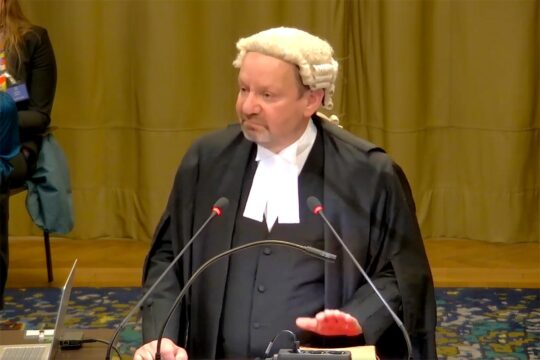The Democratic Republic of Congo launched a campaign at the United Nations on Tuesday demanding international recognition of a "genocide" against people in the Congolese east.
For more than three decades the eastern DRC, a region bordering Rwanda with abundant natural resources, has been plagued by fighting between rival armed groups, including the deadliest conflict since World War II.
The Congolese government has regularly called the deaths stemming from the conflict for control over its lucrative minerals, including gold and the coltan key to the making of mobile phones, a "genocide".
While the fighting has lasted decades and drawn in several foreign powers, in recent years the resurgence of the Rwanda-backed M23 militia has left thousands dead and triggered a spiralling humanitarian crisis in the already restive region.
"We are campaigning for ... the world to break its silence" as no one "dares utter the word genocide", the DRC's human rights minister Samuel Mbemba told reporters at the UN's European headquarters in Geneva.
"We started in Geneva, we will go to New York" to make leaders "realise that what is happening in the DRC deserves to be named" as such, he said.
Rwanda was yet to reply to AFP's request for comment.
Since taking up arms again at the end of 2021, the M23 has seized swathes of the Congolese east with Rwanda's help, taking the key cities of Goma and Bukavu in a lightning offensive earlier this year.
A UN report last week determined that all sides in the conflict had committed gross rights violations in the region, finding "reasonable grounds" to believe that M23 fighters had committed crimes against humanity.
While debating that report at the UN on Tuesday, UN rights chief Volker Turk stressed that both "Rwanda and the DRC have responsibilities under international law for supporting armed groups with known track records of serious abuses".
- 'Systematic crimes' -
In response, Mbemba said Turk "could have, based on his own findings, characterised the events as genocide".
Denouncing "massive and systematic crimes" committed "by Rwanda and its proxies", the minister pointed to events in July, "when nearly 300 compatriots were savagely massacred in Rutshuru", in North Kivu province.
He also cited Human Rights Watch, which accused the M23 of summarily executing more than 140 civilians, most of them ethnic Hutus, that same month.
While denying it provides the M23 with military support, Rwanda argues that it faces an existential threat from the presence in the Congolese east of rebel groups founded by Hutu leaders involved in the 1994 Rwandan Genocide of the Tutsis.
Clashes have flared despite a peace deal signed between the DRC and Rwanda in June, and a separate commitment to a "permanent ceasefire" signed by the Congolese government with the M23 in July.
Congolese Communications Minister and government spokesman Patrick Muyaya insisted on Tuesday that the "campaign" for recognition of a genocide was "not incompatible" with the ongoing peace process in Doha.


